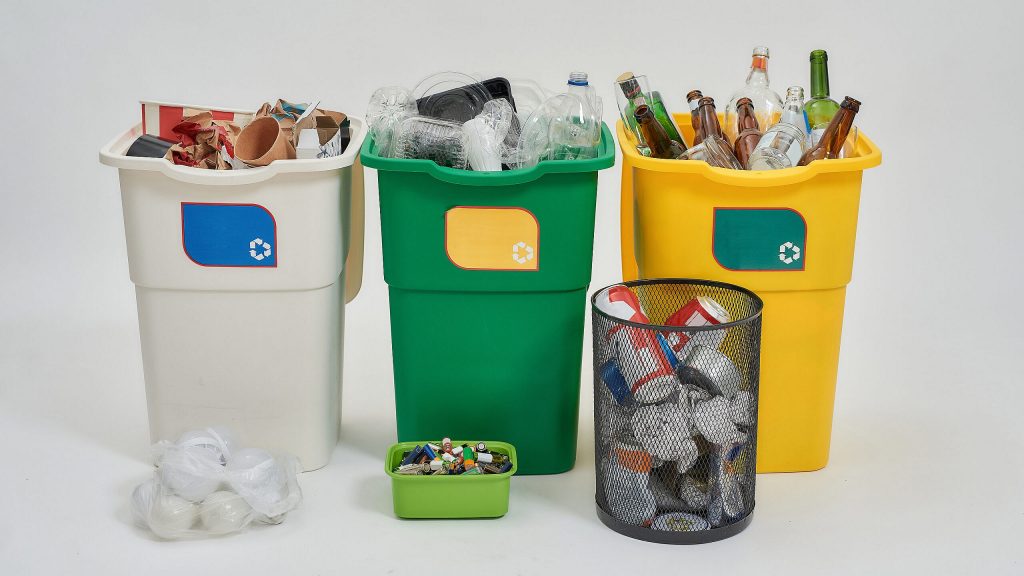Some local governments have waste and recycling regulations that businesses must comply with. Local recycling laws are important for business owners and managers to know inside and out.
An Introduction To Recycle Laws And Regulations
Even though there are many different recycling laws and rules in the USA, they all have the same two goals: to increase the number of people who recycle and to reduce the amount of trash that ends up in landfills.
The RCRA act, passed in response to the Solid Waste Disposal Act of 1965, granted the Environmental Protection Agency (EPA) the power to supervise how waste is managed and recycled, as well as to establish essential recycling standards for the states to adhere to.
The RCRA is the main federal law in the US for dealing with solid waste. Still, state governments across the nation have regulations regarding trash and recycling, including recycling requirements, landfill limits, e-waste regulations, and more.
Mandatory Recycling Laws in the States
The NERC reports that recycling standards are currently in effect in 25 states. Batteries, laptops, news outlets, glass bottles, aluminum cans, and paperboard are the most common products covered by these regulations.
Even if the state does not mandate recycling, your city or municipality could. In Pittsburgh, for instance, business owners are expected to recycle a range of items and maintain extensive records of their efforts.
Commercial Recycling Is Required
Laws forcing businesses to recycle are becoming more common in municipal governments around local government units. In California, organizations that generate more than four cubic yards of waste material per week are required to recycle and compost.
It has been mandated by the city of Seattle that businesses in the city divide their recyclable materials into separate bins. For this reason, companies are required to recycle in Seattle. Recycling does not necessitate any changes to the way businesses operate because they already produce a large number of products that can be recycled.
Required Electronic Waste Laws
Currently, half the US states have electronic waste management programs in place. California is the very first state to pass the Electronic Trash Reuse Act of 2003, which established a system for collecting and recycling certain types of electronic waste.
After California, 24 states, which include Minnesota, Oregon, Connecticut, and Carolina, passed e-waste recycling laws. Even if you reside in one of the 22 states without a recycling law, your company can and should recycle electronic waste.
Numerous government offices and retail establishments accept old electronics such as televisions, laptops, and batteries.
The Resource Conservation And Recovery Act (RCRA)
The EPA has the authority to collaborate with federal and state governments to guarantee that hazardous waste is handled by law and regulations and establish a recycling system under the (RCRA).
The law mandates that businesses receive guidance on how to discharge toxic waste in accordance with safety regulations. In the case of a new business that generates hazardous waste, an inspector will assist them in determining the most secure disposal method.
Pollution Prevention Act
The Pollution Prevention Act (PPA) is used to stop or reduce pollution when it is impossible to recycle at the source. According to the Act, the EPA must provide specific technical assistance to firms seeking information on potential source reduction and make suggestions to Congress on how to remove obstacles to source reduction, such as by using incentive structures.
Dumpster Rentals Can Help With Recycling Trash
About 250 million tons of rubbish are disposed of each year in the United States, according to the waste management industry. Many landfills across the country conceal rubbish. It can take millions of years for glass to decompose, for example.
It’s a good idea to repurpose goods nearing the end of their usefulness. Recyclable materials include plastic, aluminum, cardboard, paper, and glass. Getting rid of recyclable materials can be as simple as renting a dumpster to dispose of that junk.
It may be hard and take time to find a recycling center close to you. People who rent dumpsters can choose the recycling option to ensure their trash gets recycled.
Ensure that the dumpster rental is used to throw away only the right things. Recycling costs less because the value of the things that are being recycled is not taken into account.
Renting a dumpster is the first thing you need to do to start recycling. Some US companies rent out dumpsters of different sizes. Everyone needs a place to put their trash before they can recycle at home or work.
You can use a dumpster with a big capacity. Glass bottles, aluminum cans, and plastic bottles are all things that take up a lot of space. When people rent dumpsters, they don’t have to worry about running out of space.





